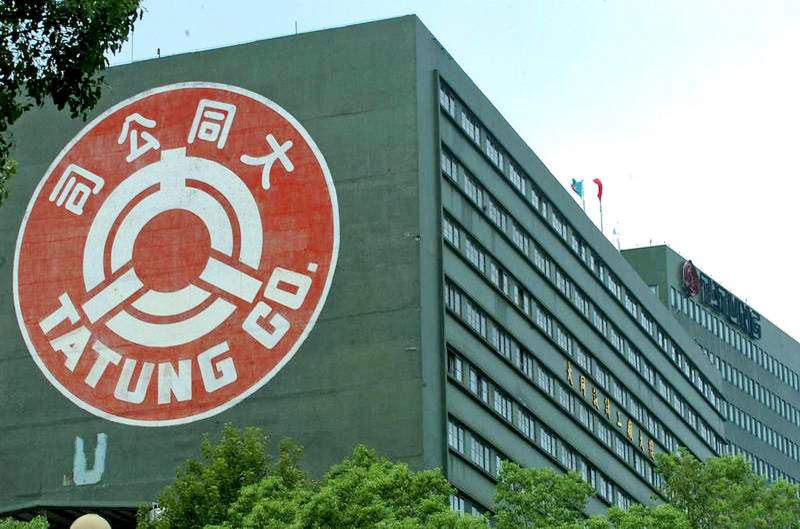Tatung Co (大同) is to terminate production of traditional electricity meters today and focus on the fast-growing “smart meter” market, in one of its greater efforts to transform itself into a profit-making company, it said yesterday.
The company said it has manufactured 18.4 million mechanical electric meters since it produced the first unit in 1954. Tatung was the nation’s first company to tap into the mechanical electric market and spearheaded the production of smart electricity meters in Taiwan in 2008.
“Tatung will devote itself to expanding its presence in the world’s smart meter market, which is expected to grow to US$55.7 billion in 2028,” the firm said in a statement.

Photo: Fang Wei-jie, Taipei Times
Last year, Tatung shipped more than 1 million smart electric meters, it said.
A smart meter records information such as consumption of electric energy, voltage levels, current and power factor.
Tatung said it has so far helped to install about 30,000 high-voltage smart electric meters for local industrial power users.
Tatung operates a smart meter plant in Taoyuan’s Dayuan District (大園) with an annual manufacturing capacity of 1 million units. The company also runs a smart electric meter manufacturing facility in Thailand with the aim of tapping into rapidly growing replacement demand from ASEAN member nations until 2029.
Electric meters, heavy electrical equipment, motors, and wires and cables made up nearly 50 percent of Tatung’s revenue last year, company data showed.
It said exports of its electric meters expanded at an annual growth rate of 35 percent last year, outpacing the 19 percent annual growth of the products it sold in the domestic market.
Only 30 percent of its electric meters were exported last year.
Tatung reported a net profit of NT$523 million (US$17.95 million) in the first quarter of this year — its fourth straight profitable quarter after a new management team took over in the second quarter of last year.
The company posted a net profit of NT$3.67 billion for the whole of last year, compared with from a net loss of NT$1.5 billion in 2020. That translated into earnings per share of NT$1.57 last year, reversing its net loss of NT$0.46 per share a year earlier.
Tatung is not distributing a cash dividend this year.

SEASONAL WEAKNESS: The combined revenue of the top 10 foundries fell 5.4%, but rush orders and China’s subsidies partially offset slowing demand Taiwan Semiconductor Manufacturing Co (TSMC, 台積電) further solidified its dominance in the global wafer foundry business in the first quarter of this year, remaining far ahead of its closest rival, Samsung Electronics Co, TrendForce Corp (集邦科技) said yesterday. TSMC posted US$25.52 billion in sales in the January-to-March period, down 5 percent from the previous quarter, but its market share rose from 67.1 percent the previous quarter to 67.6 percent, TrendForce said in a report. While smartphone-related wafer shipments declined in the first quarter due to seasonal factors, solid demand for artificial intelligence (AI) and high-performance computing (HPC) devices and urgent TV-related orders

BYPASSING CHINA TARIFFS: In the first five months of this year, Foxconn sent US$4.4bn of iPhones to the US from India, compared with US$3.7bn in the whole of last year Nearly all the iPhones exported by Foxconn Technology Group (富士康科技集團) from India went to the US between March and last month, customs data showed, far above last year’s average of 50 percent and a clear sign of Apple Inc’s efforts to bypass high US tariffs imposed on China. The numbers, being reported by Reuters for the first time, show that Apple has realigned its India exports to almost exclusively serve the US market, when previously the devices were more widely distributed to nations including the Netherlands and the Czech Republic. During March to last month, Foxconn, known as Hon Hai Precision Industry

Taiwan Semiconductor Manufacturing Co (TSMC, 台積電) and the University of Tokyo (UTokyo) yesterday announced the launch of the TSMC-UTokyo Lab to promote advanced semiconductor research, education and talent development. The lab is TSMC’s first laboratory collaboration with a university outside Taiwan, the company said in a statement. The lab would leverage “the extensive knowledge, experience, and creativity” of both institutions, the company said. It is located in the Asano Section of UTokyo’s Hongo, Tokyo, campus and would be managed by UTokyo faculty, guided by directors from UTokyo and TSMC, the company said. TSMC began working with UTokyo in 2019, resulting in 21 research projects,

Quanta Computer Inc (廣達) chairman Barry Lam (林百里) yesterday expressed a downbeat view about the prospects of humanoid robots, given high manufacturing costs and a lack of target customers. Despite rising demand and high expectations for humanoid robots, high research-and-development costs and uncertain profitability remain major concerns, Lam told reporters following the company’s annual shareholders’ meeting in Taoyuan. “Since it seems a bit unworthy to use such high-cost robots to do household chores, I believe robots designed for specific purposes would be more valuable and present a better business opportunity,” Lam said Instead of investing in humanoid robots, Quanta has opted to invest